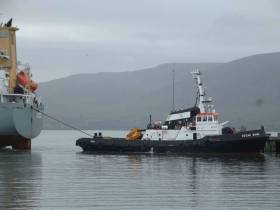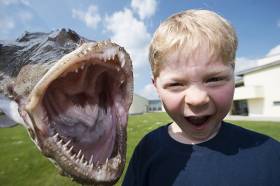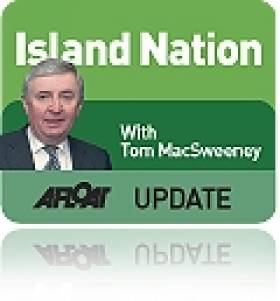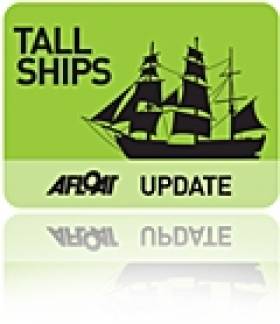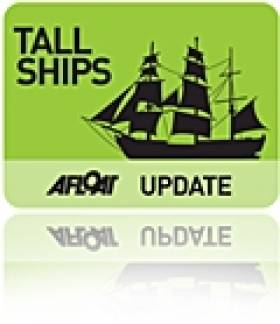Displaying items by tag: Ocean Wealth
I’m wondering why Government officials, the civil servants, don’t listen to advice from people who know more than they do about the maritime sphere…..
Two issues which cause concern are the contradictory attitude of the Department of the Marine which, on the one hand proclaims the importance of the blue economy and pushes the Ocean Wealth Plan as evidence of its maritime commitment, but on the other hand – denies that fish in Irish waters are a natural resource which Ireland owns … Hard to believe perhaps, but that is what the Department has said and a leading maritime lawyer challenges it, as you’ll hear on the Podcast.
The second issue is maintaining the communities on our offshore islands where there is a belief that the Government is not helping sufficiently … President Higgins agrees with them and in the Podcast you’ll hear the Islands’ Federation point to the success of WIORA held on the Aran Islands and a shipping achievement for Bere Island as evidence of what the islands can do.
Listen to the Podcast here
'Blue Economy' Focus By Government
Marine Minister Creed officially opens third national marine (Ocean Wealth) conference and launches third Progress Report on Implementation of Harnessing Our Ocean Wealth today.
The Minister outlined the Government’s continued commitment to blue growth and implementation of Harnessing Our Ocean Wealth –Ireland’s Integrated Marine Plan. Addressing more than 500 international and national industry leaders, policy makers, researchers and maritime entrepreneurs at the third annual ‘Our Ocean Wealth’ Conference today, in the National University of Ireland, Galway,
Speaking at the conference today Minister Creed said:
“Ireland’s marine sector is a vibrant part of our national economy and we have seen significant growth in our ‘blue economy’. This transformation is being brought about by the commitment and hard work of various State agencies, Government Departments, relevant stakeholders and investors.
“I am delighted to announce the publication of the third Progress Report on Ireland’s Integrated Marine Plan Harnessing Our Ocean Wealth published by the Government in 2012. The Report sets out the considerable recent progress achieved in implementing the ambitious targets and actions outlined in the Plan and I would like to thank everyone for their continued commitment to its implementation.
The conference, which is an opportunity to reflect on the progress and achievements in implementing Harnessing Our Ocean Wealth included contributions from Minister Creed, Minister Coveney, Minister Naughten and Minister of State Kyne.
Minister Creed stated “This Government will continue to work with the sector’s stakeholders, we will build on the success of recent years and continue to implement Harnessing Our Ocean Wealth – which aims to double the value of the blue economy by 2030 and deliver 29,000 additional jobs across the maritime sector and wider economy.”
Guided by the theme “Into the Blue – Innovating for our Marine Future” the conference focused on how Ireland can innovate in three target areas of Harnessing Our Ocean Wealth, namely: A Thriving Maritime Economy, Healthy Ecosystems and Engagement with the Sea. Key speakers included Mary L. Shelman, global food and agri-food thought leader, European Commission DG Research Head of Marine Resources Sigi Gruber, Gerald Fleming of Met Eireann, Craig McLean, US National Ocean & Atmospheric Administration and Linda Rosborough of Marine Scotland.
Creating an infrastructure to support the blue economy is critical to the success of Ireland’s integrated marine plan. A key infrastructural element to support the maritime sector was also officially launched at the conference by Minister Creed – the SmartBay Subsea Observatory has now started streaming high speed data from the seabed at Galway Bay to businesses, researchers, scientists and policy makers across the internet. Supported by the Marine Institute, Sustainable Energy Authority of Ireland (SEAI) and Science Foundation Ireland, the observatory will be used to collect valuable data from the ocean and will be a critical component of a world-class maritime infrastructure in Ireland.
Welcoming the launch of the Data Observatory, the Minister for Skills, Training and Innovation, John Halligan T.D. said , “This new infrastructure will play a key role in developing and testing the technologies necessary to unlock the economic potential of our Atlantic coast. It will drive innovation in SMEs and multinational companies in the ocean energy sector. I am particularly pleased that Science Foundation Ireland has supported this infrastructure with an award of €2.2 million, under its Research Infrastructure Programme, to fund the subsea cable providing power and data connectivity to the test site”.
Other announcements included the establishment of a dedicated Marine Development Team involving major development agencies of the state in an integrated inter agency based approach to delivering further development of the blue economy.
Minister Creed added that “The Marine Development Team which will make recommendations to the cross Departmental Marine Coordination Group, will be coordinated by the Marine Institute. I look forward to this talented team bringing a further collaborative, cohesive and cutting edge approach to growing Ireland’s Blue Economy and augmenting the positive inter agency work of recent years.”
Harnessing Our Ocean Wealth and Seafest are initiatives of the Inter-Departmental Marine Coordination Group. The conference as well as a range of industry and innovation events are taking place in Galway as part of SeaFest from 30th June -3 July. A wide range of public events are also taking place in Galway Harbour this weekend (July 2-3) as part of SeaFest which supports a key goal of Harnessing Our Wealth – An Integrated Marine Plan - engaging with the Sea.
Marine Plan Could Deliver An Additional 29,000 Jobs
#oceanwealth – Addressing the second 'Harnessing Our Ocean Wealth' Conference today, in Ringaskiddy, Co. Cork, Simon Coveney TD, Minister for Agriculture, Food and the Marine outlined new economic research that indicates the Government's blueprint for the marine which could deliver more than 29,000 additional jobs and an additional €2.7bn in economic growth by 2020. Downloasd speech below.
Minister Coveney said that "Ireland is now firmly on what I believe is an unstoppable journey of marine expansion. We are experiencing a significant period of 'blue growth' with a 9% increase in growth in Ireland's marine sector over the last five years and the ocean economy now valued at 1.3% of GDP. Today we are building on this progress with the publication of a development framework for the marine sector, coupled with the clear commitment from Government to introduce a marine spatial planning process for the country, which will underpin the achievement of these economic targets as the Harnessing Our Ocean Wealth strategy is implemented."
Ireland's Ocean Economy report and associated research on the downstream impacts of the marine, produced by the Socio Economic Marine Research Unit at the National University of Ireland states that if HOOW targets are met, 29,300 new jobs could be created by 2020, with 16,100 projected to come directly from the marine sector. An additional growth of €2.7bn in the wider economy is also expected.
The report also confirms the current value of the blue economy. In addition to the 18,400 individuals currently directly employed in our marine industries, a further 13,000 are employed indirectly across the wider economy, creating an additional €3.3bn in turnover. For every €100 turnover created from our ocean economy, a further €78 is created indirectly in other sectors.
The Minister encouraged members of the public to attend the Seafest 2015 open day on Saturday in Ringaskiddy "Members of the public will be able to access a state of the art stimulator that is used to train ships' captains and visit seafood cookery demonstrations. They will also be able to experience what it's like to be exposed to hurricane force winds through the BIM Beaufort Scale Hurricane Experience. There will be an extensive seafood fair and cookery demonstrations and multiple other activities on and off the water. This event is free of charge for every age group with lots of family activities planned."
The Conference included contributions from Minister Coveney, Alex White, T.D., Minister for Communications, Energy and Natural Resources; Sean Sherlock, T.D., Minister for Research & Innovation; and Mr Paudie Coffey T.D., Minister of State at the Department of the Environment. Commissioner Karmenu Vella, Environment, Maritime Affairs and Fisheries European Commission and Rt. Hon. Darin King, Minister of Business, Tourism, Culture in the provincial government of Newfoundland and Labrador also spoke at the Conference.
This second annual Conference which reviewed ongoing progress on implementation of the Government's Integrated Marine Plan (published in 2012) was attended by over 500 delegates from the public and private sector with an involvement in the marine sector.
In concluding his address, Minister Coveney said "I believe that the outlook for the sector is really exciting and the possibilities are endless. The challenge now is to make the marine sector a leading contributor to the Irish economy and to recognise the potential we have as an island nation to be a major player in the sector internationally."
#islandnation – The sea moulds the Irish coastline, it lubricates the nation's economy, its exploration is a resource for scientific investigation, it provides adventure and leisure.
The sea which surrounds us also has the potential to be a cradle for national resources, with the power to feed and provide energy.
A national strategy, "Harnessing Our Ocean Wealth," was launched in 2012, intended to position Ireland to gain advantages from the global marine market, particularly for seafood, tourism oil and gas, ocean energy, to a predicted value of €1.2 billion. The Naval Service has got a new ship, another is under construction. There is a National Maritime College and the Beaufort Centre of IMERC, the Irish Maritime and Energy Resource Cluster, on the College Campus will "promote Ireland as a world-renowned research and development location, that will unlock Ireland's maritime and energy potential," according to its own description. These are some of the positive developments.
So has the Government overcome the "sea blindness" which has pervaded national policy for many previous years?
Benjamin Franklin wrote of a "little neglect" creating greater problems and, though his remarks were aimed at other than maritime affairs, they are apposite to quote in relation to marine matters.
Why is it that an island nation does not have a dedicated maritime department of government and that aspects of the marine sphere are spread around so many departments that the high level which marine affairs should be at has been so diffused? This, despite pre-election promises by Coalition parties, that maritime affairs would have the highest priority and all of them would be brought under one Department.
That would seem to indicate that pre-election promises are just political guff by those who "say anything, comment on anything," to get into power and stay there!
Over 95 per cent of all exports and imports to this island are moved by sea and every import and export has to cross the sea, even the small percentage carried by air. Nothing can enter or exit the country without crossing over the sea.
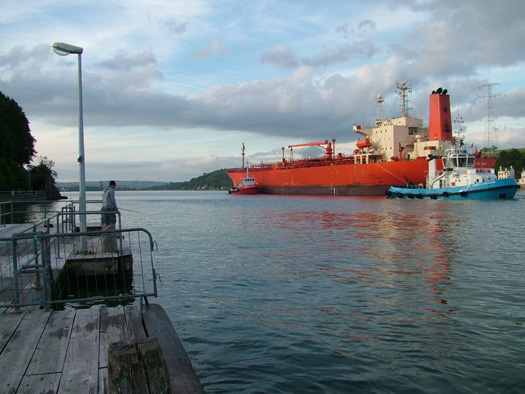
So why is the marine sphere not a primary focus of national policy?
The power to feed from the sea was given away by failures at the highest levels of political and civil service to realise how important the fishing industry should be to the future of the nation, when the vast wealth and resources of Ireland's waters in fishing were conceded to the power of the European Union.
Two natural gas finds, at Kinsale Head and the Corrib, have not and do not show signs of, producing wealth for the Irish people. From Kinsale, Ireland did get supplies of natural gas and a supply network, but the nation - the people of Ireland - paid for it while profits from the finds went to the exploration companies. The same looks like happening in the Corrib. The Government does appear to have changed its attitude, with new requirements announced for any future offshore discoveries of oil or gas, but it has come somewhat late to acceptance of the depth and breadth of Irish marine resources.
Raising public awareness about the maritime sphere in Ireland is crucial. This is relative to all aspects of the marine sphere from commercial, industrial, employment potential to leisure.
"Sea blindness" has pervaded political life for many years.
But it was not evident amongst early leaders of the nation. Arthur Griffith argued for a strong fishing industry and emphasised how vital it and the marine sphere would be to Ireland in the future. The Government during World War Two, realised the accuracy of that summation when, isolated despite being a neutral nation, it had to establish a national shipping company to supply vital needs. The liquidation of that company, the abandonment of seafarers, the disaster visited upon the fishing industry and coastal communities by the failures to realise its importance, neglect of ports and safety policy for many years were and in some cases remain as indicators of State neglect.
The fine weather has underlined the importance of the sea, as people went to the seaside; the problems of pollutants from landward into the sea and rivers has caused difficulties and perhaps given people some increased appreciation of the importance of the sea and protecting it.
Public awareness of the sea is crucial, to pressurise politicians, a group which, in the main, has failed to contribute positively in this regard. National media coverage of maritime affairs is abysmal, apart from tragedies and controversies.
There are Irish politicians who should be ashamed of themselves for their attitude to the marine sphere in past years. I cannot forget doing an interview with one of them, who came from a family with a long political heritage and who had just been appointed Minister for the Marine and who told me, as he thought in avuncular fashion and that it was a joke: "I'm the Minister for fish and ships, but we have to suffer a bit in political life to get on." When I asked if he would repeat that comment on the record, he got rather nasty and didn't like when I said that I respected seafarers and fishermen, but doubted his attitude, from what he had said about his department which seemed, to me like disrespect of the importance of maritime matters.
"Well, it's not the highest appointment I could have got," was the huffy reply.
I have attempted to make the case for an Irish Maritime Foundation, which would be founded to raise awareness of marine matters, encompassing all strands of interest, which would be a maritime platform, with public, private and State involvement.
Ireland's maritime resources, our maritime heritage, the island nation in which we live, deserve this.
There should be a dedicated Department of the Marine, encompassing all aspects of the marine sphere and the Minister of that Department should be regarded as a major posting in Government.
That would recognise that Ireland is "an island nation."
The public have a role as the guardians of Ireland's marine resources.
SAILING DECISIONS
I wrote a few weeks ago about my interview with David Lovegrove, President of the Irish Sailing Association and the review of sailing and if the association which he is leading. He impressed me with his fresh, innovative thinking and determination. Sailing also needs higher public awareness.
I was in Carrigaline Library in County Cork when a man approached and told me how he very much wanted his son to go on an ISA Training Course, but he could not afford the club membership which would be necessary before his son wold be accepted and that, coupled with the cost of the course itself and, perhaps, a boat to use, it was all beyond his resources. His young lad, of 11, was with him. He had been at a football summer camp, which cost €80.00 and his father wondered why sailing clubs did not provide something similar and not just the courses which he considered expensive.
I did explain about courses at sailing schools and about the costs which clubs had to meet to run courses, but his experience does make a point. Is there any prospect of a 'summer camp" approach without high costs, for those who would like to be involved, but can't afford formal training courses in these present times?
A related point is for those who would like to crew on boats, but cannot afford club memberships and probably would not use a club facilities for other than on one night's racing a week.
These are aspects which could be looked at to address declining numbers.
As this man said to me: "You say that sailing is a sport for all, but I don't see that."
Affordability is an issue because other sports are cheaper to become involved in.
I hope that this will be addressed when the result of David Lovegrove's work is revealed later this summer. I gather that also discussed by the ISA board have been how sailing can be given a 'community involvement' aspect, preserving the 'lifelong sport' approach which, in my view, should be a major attractive point and sailing's unique capacity for family involvement; how to relate cruising and racing, the fragmentation of the sport into so many classes of boats; and how to relate club and local sailing with high performance.
There are a lot of issues, another of which of course is the media attitude towards the sport. It remains noticeable how little regular, concentrated attention, it is given by the national media.
FIRST WORLD ANGLING MEDAL FOR IRELAND
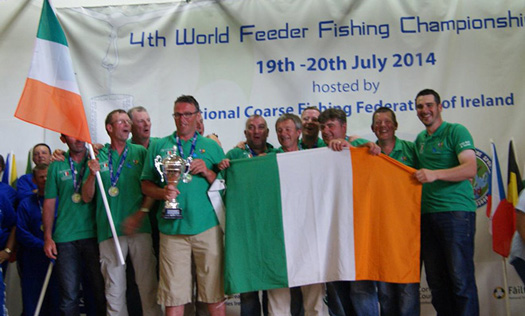
It is good to see another Irish marine success, a historic achievement for Irish coarse anglers. 125 anglers from 25 countries were in Coachford, County Cork, for the World Feeder Fishing Championships. Going into the competition the English team was the favourite. They had visited the venue a number of times in advance of the competition as part of their preparations! "The Irish finish was especially satisfying," Paul Bourke of Inland Fisheries Ireland told me, "as it is the first team medal in a world championships." Congratulations go to Francis McGoldrick, Richard Pratt, Tony Kersley, Paul Leese, Nigel Houldsworth, Ken Ince, Brenton Sweeney– Captain and Roger Baker– 2nd Captain.
DIVING TRAGEDIES
Though I am more involved in being "on the water" rather than in it and prefer things that way, I appreciate the under-the-surface beauty of Irish waters and the sport of diving, amongst the fraternity of which I have many contacts. The deaths of six recreational underwater divers since June have been of deep concern. It is not an emerging trend of fatalities in the sport, according to the Irish Underwater Council which has urged diving enthusiasts to ensure that they are medically fit to dive and that their equipment is serviced at regular times and is in good working condition.
MARVELLING AT THE OPPIES
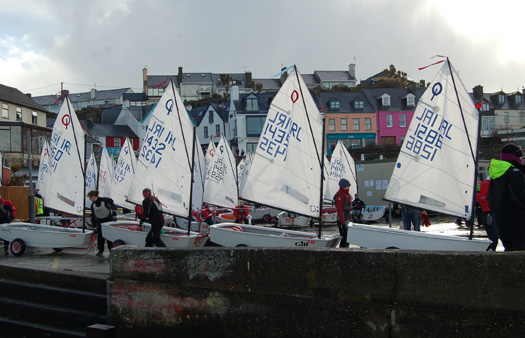
I remember one night at the RCYC when there was a discussion about whether it was a night to go sailing as the rain fell and it seemed the wind would be increasing.
I looked out from the clubhouse and there was the Optimist fleet, with the young sailors putting out for their racing/training. That ended the discussion and off we went! There are times when I look with appreciation and some awe at what conditions the Oppies can handle. Sometimes I wonder if they are being exposed to too much, as I did in the cold and wet at Baltimore in West Cork earlier this year in what seemed like mid-Winter days when there were Oppies from, it seemed, all over the country for a training session. But the Oppies seem to manage it all.
There is just over a week to go until the closing date for entry to the Optimist National Championships at the RCYC. Doug Howlett will officially open the CH Marine-sponsored event which will start on Thursday, August 14. Details on www.oppienationals.com or by emailing [email protected]
GREENPEACE FOLLOWING COSTA
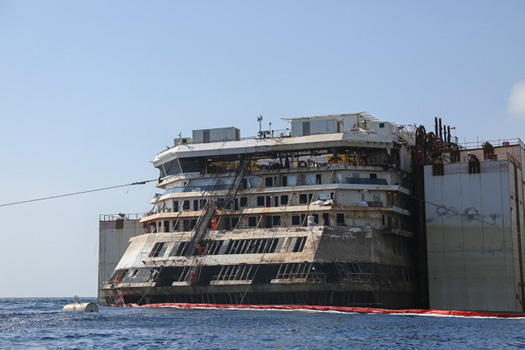
Greenpeace has been following the towing of the Costa Concordia from Giglio to Genoa, because of its passage through what it has described as "one of Europe's largest marine sanctuaries."
"We're particularly concerned about impacts on the Pelagos sanctuary, which protects whales and other marine life in the area," said Greenpeace.
The Pelagos Sanctuary for Mediterranean Marine Mammals is a protected area of 87,500 square kilometres in the north-western Mediterranean covering much of the towage course. The decision to tow the Costa Concordia to Genoa was approved by the Italian Government prior to the start of the re-floating operation and was based on that port's ability to perform the demolition work.
NEXT THIS ISLAND NATION RADIO PROGRAMME HERE ON AFLOAT: August 7.
Maritime Ireland Deserves a Tall Ship
#tallship – You come across a reference to an island nation - the 20th largest in the world - that doesn't have a marine policy or a dedicated marine department, and you think it must be some kind of a joke. It's a ship of state without a captain, or a rudder. It adds insult to injury to discover that this same island nation was moved to the verge of bankruptcy after her inhabitants turned their backs on the ocean and invested too heavily in the land.
So much for living in a smart economy.
Not many people living in Ireland realise that it's the third biggest country in Europe, by virtue of her seabed territory of 220 million acres.
Ask any fisherman what EU membership did for our trawler fleet and you will get a quick answer. Ireland has two–thirds of European fishing waters and 3 per cent of the catch. That sell-out, as the fishing community saw it, was the beginning of the end of marine policy in Ireland.
We have in the past been able to blame a lot of our maritime ignorance on the British, with a little justification. Boat ownership by the 'native Irish' was restricted at times, and fishing permitted only by licence. But that was 400 years ago, so we're running out of excuses.
If you're searching for a recent symbol of this marine neglect, look no further than Asgard II. At 30 years old, the boat was at the end of her working life when she sank off the coast of France in 2008.
She was our maritime flagship, a national icon which had given 10,000 young people the chance to go to sea. The insurance money paid out and it went into central exchequer funds. The State showed no interest in replacing her. Until now perhaps?
There has been some sort of maritime awakening in official Ireland. In June, the Government hosted an Ocean Wealth conference declaring millions could be 'harnessed' from our seas in so many ways.
Separately, a new naval patrol vessel has arrived at a cost of E54m. Another one is expected next year. This month the Taoiseach announced he'd ordered a third.
Is it all coincidence or is Ireland moving towards a new marine game plan?
There's no doubting the public's interest in our seas.Just look at the interest in the maritime festivals around our coast this summer and the crowds that came to see Spain's 'Juan Sebastián de Elcano', the world's third largest Tall Ship in Dublin port in June.
Now there is fresh State impetus in the marine, there should in tandem be plans to replace Ireland's Tall Ship, a symbol of our maritime heritage and the possibilities offered in the seas that surround us.
#Addressing the 'Our Ocean Wealth Conference' today, Simon Coveney, TD, Minister for Agriculture, Food and the Marine outlined the significant progress made to date in implementing the Government's 2012 Harnessing Our Ocean Wealth: An Integrated Marine Plan for Ireland.
The Minister said "today's event brings together some of the most important figures in the Marine sector, and places it firmly in the spotlight as an industry with a significant economic and social contribution to make. It provides us with an opportunity to take stock of what has been achieved since Harnessing Our Ocean Wealth was published and to consider how to meet future opportunities and challenges".
Minister Coveney said that "I have spoken today about the many initiatives which have flowed directly or indirectly from HOOW. Integrating our marine policy is leading to significant results already but this is not a short term strategy. The target of doubling the percentage of GDP contributed by marine sector is an ambitious one but is more than achievable. Reaching those targets will depend on public and private sectors working collectively to make our ambitions for the sector a reality. We must be bold and radical in our ambitions for the sector and open to a range of new ideas".
In concluding his Address, Minister Coveney said that "HOOW has had some early successes in terms of implementation of the early actions identified in the plan but we must not underestimate the significant challenges which lie ahead. We can now finally envisage a potential golden era for Ireland's marine sector and today's conference is both timely and relevant in contributing to the pathways ahead towards a vibrant marine economy".
The Conference was opened by An Taoiseach, Enda Kenny, T.D. and included contributions from Minister Coveney, Pat Rabbitte, T.D., Minister for Communications, Energy and Natural Resources; Sean Sherlock, T.D., Minister for Research & Innovation; and Fergus O'Dowd, T.D., Minister of State at the Department of Communications, Energy and Natural Resources. Minister Susan Sullivan from the Government of Newfoundland /Labrador, Canada also spoke at the Conference.
The Keynote Address was delivered by Miguel Marques, Economy of the Sea: Executive Partner, PricewaterhouseCoopers on the subject of A Global Perspective on the Economy of the Sea. The Conference covered four main themes: The Global Opportunity for Irish Seafood; Research & Innovation and Emerging Sectors; Energy – Offshore Hydrocarbons and Where Land Meets the Sea – Opportunities and Challenges for Marine Tourism. Key speakers addressed these four themes followed by a panel discussion with relevant stakeholders.
The Conference is the first annual review of the Plan and was attended by over 400 delegates from the public and private sector with an involvement in the marine sector.
#oceanwealth - Addressing the 'Our Ocean Wealth Conference' today, Simon Coveney, TD, Minister for Agriculture, Food and the Marine outlined the significant progress made to date in implementing the Government's 2012 Harnessing Our Ocean Wealth: An Integrated Marine Plan for Ireland.
The Minister said "today's event brings together some of the most important figures in the Marine sector, and places it firmly in the spotlight as an industry with a significant economic and social contribution to make. It provides us with an opportunity to take stock of what has been achieved since Harnessing Our Ocean Wealth was published and to consider how to meet future opportunities and challenges".
Minister Coveney said that "I have spoken today about the many initiatives which have flowed directly or indirectly from HOOW. Integrating our marine policy is leading to significant results already but this is not a short term strategy. The target of doubling the percentage of GDP contributed by marine sector is an ambitious one but is more than achievable. Reaching those targets will depend on public and private sectors working collectively to make our ambitions for the sector a reality. We must be bold and radical in our ambitions for the sector and open to a range of new ideas".
In concluding his Address, Minister Coveney said that "HOOW has had some early successes in terms of implementation of the early actions identified in the plan but we must not underestimate the significant challenges which lie ahead. We can now finally envisage a potential golden era for Ireland's marine sector and today's conference is both timely and relevant in contributing to the pathways ahead towards a vibrant marine economy".
The Conference was opened by An Taoiseach, Enda Kenny, T.D. and included contributions from Minister Coveney, Pat Rabbitte, T.D., Minister for Communications, Energy and Natural Resources; Sean Sherlock, T.D., Minister for Research & Innovation; and Fergus O'Dowd, T.D., Minister of State at the Department of Communications, Energy and Natural Resources. Minister Susan Sullivan from the Government of Newfoundland /Labrador, Canada also spoke at the Conference.
The Keynote Address was delivered by Miguel Marques, Economy of the Sea: Executive Partner, PricewaterhouseCoopers on the subject of A Global Perspective on the Economy of the Sea. The Conference covered four main themes: The Global Opportunity for Irish Seafood; Research & Innovation and Emerging Sectors; Energy – Offshore Hydrocarbons and Where Land Meets the Sea – Opportunities and Challenges for Marine Tourism. Key speakers addressed these four themes followed by a panel discussion with relevant stakeholders.
The Conference is the first annual review of the Plan and was attended by over 400 delegates from the public and private sector with an involvement in the marine sector.
#oceanwealth – Minister for Agriculture, Food and the Marine Simon Coveney TD today announced the details of a major Conference on Our Ocean Wealth which is being held in Dublin Castle on 18 June 2014.
Announcing the Conference, Minister Coveney commented that "the implementation of Harnessing Our Ocean Wealth is a whole of Government initiative. Our vision is that our nation's ocean wealth will be a key element of our economic recovery and sustainable growth and we will continue to work with the sector's stakeholders to achieve this vision for our citizens".
The Conference is the first annual review of progress in implementing the Government's 2012 publication Harnessing Our Ocean Wealth: An Integrated Marine Plan for Ireland. The Government sees the marine sector as an important pillar to our national recovery and Harnessing Our Ocean Wealth is a key driver for developing the sector to meet our growth targets for it.
The Conference will cover four main themes: The Global Opportunity for Irish Seafood; Research & Innovation and Emerging Sectors; Energy – Offshore Hydrocarbons; and Where Land Meets the Sea – Opportunities and Challenges for Marine Tourism. Key speakers will address these four themes followed by a panel discussion with relevant stakeholders.
Time for a New Tall Ship for Ireland in 'Ocean Wealth' Plan
#TALL SHIPS - The chairman of the group that brought the Volvo Ocean Race to Galway this summer has urged Ireland's maritime interests to take stock as the Tall Ships Races Festival takes over Dublin this weekend.
In a letter to The Irish Times yesterday, Let's Do It Global/Ocean Youth chair Enda O'Coineen said there is an opportunity within the new Integrated Marine Plan to build a new cross-border national flagship to replace the Asgard II and promote youth sail training as a platform for "education and character development for young people" in Ireland.
O'Coineen writes that it is "critical, as islanders, to realise that we are becoming just spectators, withdrawing from the ocean, instead of educating our youth to embrace it and its wealth."
As previously reported on Afloat.ie, the new 'ocean wealth roadmap' is specifically geared towards exploiting the potential for 'blue growth' in the Irish economy.
An informal event will be held at A&L Goodbody in the IFSC tomorrow morning amid the Tall Ships Races festivities to discuss plans for a new flagship for Ireland, which have been in the works since last year.
The draft plan has had input from a broad range of stakeholders in youth, tourism, ports, construction, the Naval Service and nautical colleges, the coastguard and the diaspora. And O'Coineen adds that opinions and input will be needed and appreciates, especially in how the proposals can integrate with the new Marine Plan.


























